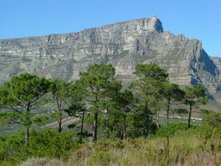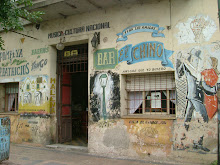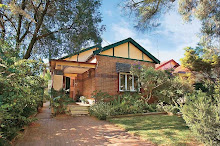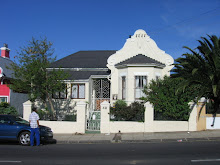Prime Minister Kevin Rudd, Australian of the Year Prof Mick Dodson and Adam Gilchrist.
Sydney Morning Herald, 26 January 2009.
Sydney Morning Herald, 26 January 2009.
Australia has entered a new era of debate. Not always comfortably, but certainly noticeably. One of Kevin Rudd's first projects after becoming Prime Minister was to call the 20/20 summit. His plan was to discuss the important issues affecting Australia with ordinary people. His detractors were quick to say that he was all talk and no action. I beg to differ. One his first, and certainly his most powerful action to date, was to say Sorry to the Aboriginal people of Australia. That was serious talk, and serious action. It shifted Australia on its axis forever (to borrow a phrase from my older sister, Yvonne).
Kevin Rudd's style continues to encourage debate. I have noticed a tangible shift in conversation since his election in 2007. When I arrived in Australia in 2004, in the 8th year of the Howard government, talk was not encouraged. Debate was discouraged. So were big ideas (I remember the CEO of the Australian non-profit where I worked raising her hand to me in a "talk to the hand" gesture and stating loudly "Thank you very much, Rosemary. We don't need any more Big Ideas. What we need is people at their desks").
The past 12 months have been different. I have seen, and been part of, lots of meaningful and action-directed talk, both at dinner-table level and in organisations. I have seen some great conversation in WILPF (Women's League for Peace and Freedom), some of which I have facilitated. The Apology led the way, and 20/20 offered a new openness.
However, today Mr Rudd has disappointed me. Prof Mick Dodson, named yesterday as the 2009 Australian of the year (he is a long-time activist and one of the authors of the 1997 "Bringing Them Home" Report) , has raised a question many have asked. He queries whether the 26th of January, the anniversary the 1788 First Fleet in Australia, is the right date for Australia Day. To some, Australia Day is Invasion Day and there are alternative celebrations that are not about beer swilling, flag-wearing, okker Australians, but about remembering the death and destruction those first settlers brought to this country, to some of the oldest peoples on earth.
The question Prof Dodson is asking is simply this: should we choose a day that represents the pride and national feeling of all Australians, a day that perhaps has less mixed feelings for some. Prof Dodson, at his own admission, is not as concerned about whether this happens or not, as he is about the fact that a conversation is needed.
Which brings me to why Mr Rudd has disappointed me. His answer was reported to be a flat "no". To my mind I don't think that's much of a conversation. Prof Dodson has another view - he said on TV this morning that perhaps that is the conversation: a question has been raised, and an answer has been given. Personally I think he's being quite big about it.
What will be interesting, and what I am thoroughly looking forward to, is the Citizens Parliament to be held in Canberra in the first week of February. This, I think, is a real conversation. As stated on the Citizens Parliament website, in answer to the question "Who Runs the Citizens' Parliament" :
Ultimately, it belongs to the participants. The organisers are researchers from Australian National University, The University of Sydney and Curtin University, in conjunction with the newDemocracy Foundation. The Citizens' Parliament is co-chaired by Hon. Fred Chaney AO and Dr. Lowitja O'Donoghue AC CBE DSG. Participants will be guided by facilitators and assisted by researchers and volunteers.
Apparently the recommendations will be published and presented to the Prime Minister and all Members of Parliament. The idea is that the recommendations will be considered by the Government and widely discussed in the media.
I am thrilled to be one of the team of volunteer facilitators at this event. My consultancy, Making Things Work, is aimed at working in just this arena. I have no idea what will be expected of the team of facilitators, save to say that they will be very long days! And that there will be a lot of Open Space methodology, something I have worked with for years and found to be super-effective. Our briefing session in Canberra the day before the event will prepare us for the task at hand. The website has the following to say:
Facilitators ensure that everyone has the opportunity to express themselves and encourage a generous and empathetic response from listeners. Facilitators ask open questions that require reflection and consideration, to help participants find deeper understanding of the topic at hand. They don't express any favouritism--they invite participants to object if any bias is perceived, even if it is unintentional. Facilitators encourage respectful and constructive dialogue, but won't intervene unnecessarily. Importantly, facilitators of deliberative processes do not push participants to reach a consensus.Sounds like a fabulous opportunity for real conversation between 150 randomly selected delegates. Now perhaps Mr Rudd and Prof Dodson could join us for a guest conversation that does not just start with a question and end one minute later with a definitive answer!








1 comment:
Like you, I feel it's pretty special to be involved. See you in Canberra!
Post a Comment